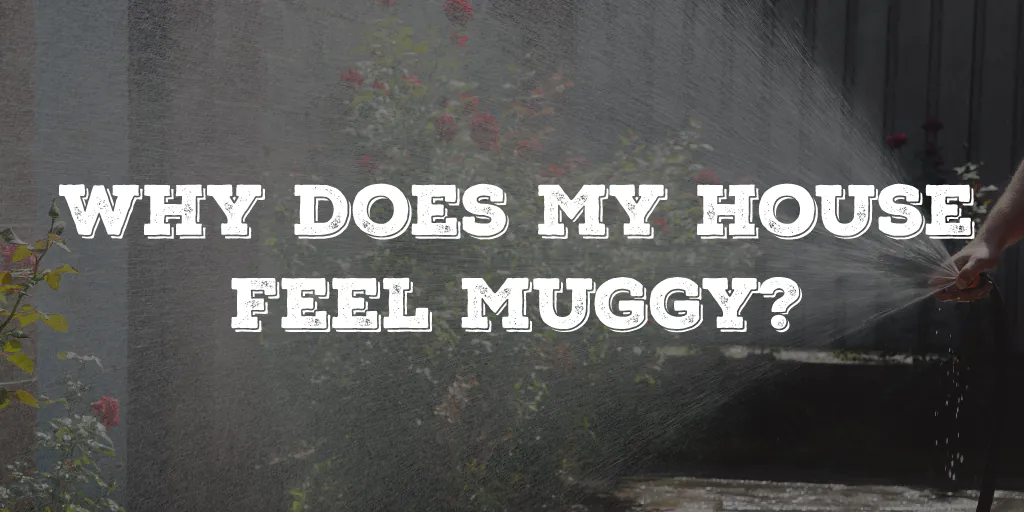A muggy house is very uncomfortable. However, it’s an occurrence we are often faced with here in Florida. As someone who works in the air conditioning business, this is a common issue our customers are faced with, and we’re always asked the same question:
Why is my house so muggy, and how can I fix it?
Here’s the good news: by knowing what causes that muggy feeling (it’s called relative humidity) and how to eliminate or reduce that cause, we can help to increase your indoor air quality and keep you comfortable in your house.
What is Relative Humidity?
Relative humidity is the cause of a muggy feeling in the house. Relative humidity measures the humidity that is relative to the temperature. Suppose you were to add a bunch of sugar to a glass of hot tea. Once that tea cools down, sugar crystals can appear. In our case, the air is the tea, and the moisture level would be those sugar crystals. Hotter air can hold more moisture than cold air, so once “hot, muggy air” cools, it becomes even more humid and muggy.
Most homes will fluctuate between about 55 and 65% relative humidity in Florida. An air conditioning unit combats these lovely effects by not only cooling the air but also dehumidifying it. Moisture is extracted from the air as it runs across the evaporator coil in the air handler, and it's dispelled outside the home through a drain. Therefore, the air conditioner cools the air and removes moisture from the house.
So Why Does My House Feel Muggy?
We’ve established how an air conditioning unit can help combat humidity and that general unpleasant muggy feeling. So, why does your home still sometimes feel muggy?
While air conditioning units are effective at cooling a house, there are a few ways we may accidentally be adding more moisture back into the house ourselves.
A few ways we introduce more moisture into the house and raise the humidity include:
- Lots of People. A large percentage of a human being is made up of water. Humans sweat to keep themselves cool, and that, in turn, adds moisture to the air. If you’ve got many people in one place, that’s a lot of extra moisture.
- When you cook, there are many open vessels that water is evaporating into the air from.
- Anytime you take a shower, bath, or anything like that, you’re exposing moisture (and often steam) into the air. Good ventilation can help with this, but it won’t eliminate the moisture completely.
- Pets and plants, just like people, will increase the amount of moisture in the air.
- It’s just plain muggy outside. Hello, Florida afternoon summer thunderstorms. Those are the perfect recipe for sending relative humidity skyrocketing—it’s not blazing hot, but there’s a ton of moisture in the air. The more moisture there is outside, the more of it will come in every time a door or window is open. Even if you shut yourself in, your house won’t be immune to increased moisture on a particularly muggy day; an exchange of air will still happen from outside to inside, just from your house being there.
How to Reduce Humidity in Your Home
Our homes can easily become muggy, so the important thing to know is how to combat it, reducing the moisture in the air. There are a few ways to do this.
The first thing to note is that the best dehumidifying air conditioner is one that runs all the time. Plenty of people shudder at this because of the perceived expense, but if you get an appropriately sized A/C unit for your home, you’ll see a big difference. When you aren’t running your air conditioning all the time, it may still keep your house cool, but it won’t be an effective dehumidifier.
Let’s look at another example. Let’s say it’s raining like crazy outside. Your A/C unit has probably turned off because the rain on the house is cooling it down. That’s fine for the temperature, but it’s still raining outside, meaning there’s a ridiculous amount of moisture in the air. Your house is cool, but your air conditioner isn’t running, so it’s not being dehumidified. Before you know it, that horrible muggy feeling will set in.
Variable-speed A/C units will help with these types of issues. You can also choose to purchase a separate dehumidifying system, which we can install in your home for you. You can also buy small dehumidifiers that you manually drain, which can also be decently effective.
With lower amounts of moisture in the air, you’ll improve the indoor air quality, and you’ll be a lot more comfortable.




